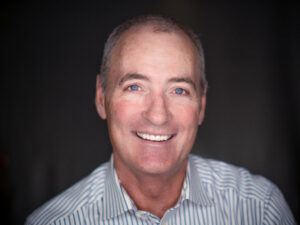
The Changing Landscape of Entrepreneurship and Health Care: A Discussion with Steve Wiggins
In an informal discussion with DMA member Frank Gallagher, healthcare industry entrepreneur and innovator Steve Wiggins will discuss his experience launching 7 start-ups in the 40 years since he first moved to Darien. One of his start-ups grew to rank among the Fortune 500 (Oxford Health Plans) and a recent one was sold in 2022 to CVS in a transaction valued at over $8 billion. His newest two ventures, based in Norwalk, are building technology that will power the next generation of how health care is paid for and financed. His businesses continue to be at the intersection of technology and healthcare, where he has spent his career.
Steve has served two U.S. Presidents in Healthcare Advisory Roles and has an informed perspective on broader issues facing the nation’s healthcare system. He and Frank look forward to exploring how starting businesses in 2024 differs from 1984, and how the evolution of technology has changed how we launch, fund, manage and evolve businesses in an era that has been re-defined by remote work, artificial intelligence, and the emergence of Web 3.0 business models.
Steve Wiggins is a Minnesota native who started his first enterprise, a non-profit organization, upon graduation from Macalester College in 1978. Accessible Space has since grown to have over 145 residential facilities in 16 states serving individuals with severe mobility impairments who require 24/7 support services. Steve moved to Darien in 1984 after graduating from Harvard Business School to take a job at a start-up investment firm called General Atlantic. He left General Atlantic to start Oxford Health Plans, which went public in 1992 and was sold to United Healthcare in 2004.
Steve was the co-founder of Health Partners, which built multi-specialty physician practices; and the co-founder of Intelliclaim, which built software used by healthcare payers. He was the founder and CEO of HealthMarket, a health insurance company serving small employers; and the Founder and CEO of Remedy Partners that built pioneering bundled payment programs for the federal Medicare program. All were sold to public companies. His latest two ventures, Oxbridge Health and OpenNetworks, are incubating in Norwalk, CT.
Speaker suggested and arranged by Frank Gallagher.
Speaker Summary
In an informal Q&A discussion with Frank Gallagher, Steve told his story of “stumbling” into the healthcare industry after a college friend suffered a traumatic spinal injury. This led to a college honors project that resulted in a job offer and founding a non-profit, Accessible Space, to serve the needs of individuals with severe mobility impairments.
With healthcare now his career direction, Steve earned an MBA to obtain critical business skills and embarked on a long, successful career as a healthcare services entrepreneur and innovator leveraging his intimate knowledge and understanding of healthcare provider, payment, insurance, and regulatory systems to identify key needs and gaps that he could leverage into unfilled business opportunities. Like his college experience that led to Accessible Health, Oxford Health Plans grew out of a project in business school where Steve studied the growth of HMO’s and he saw an opportunity for a different business model/approach that ultimately led to the creation of this Fortune 300 company.
In another example of how understanding the details and inner workings of the services and payments aspects of the industry created a business opportunity, Steve talked about how leveraging data and knowledge about payment systems and bundled payment opportunities around episodes-of-care became the basis for Remedy Partners, another of his highly successful start-ups.
In response to Frank’s questioning, Steve provided an ungarnished view of the pros and cons of American healthcare, why he believes it underdelivers on value for its cost, where it excels and comes up short, and his thoughts on opportunities to improve it. Sadly, he believes the value is getting worse, not better. He talked favorably about the importance of new requirements around cost transparency and opportunities for value-based payment programs to improve the healthcare value proposition. He also compared the U.S to other countries he has done business in and, in general, voiced support for systems that require the patient to pay for a larger portion of the services as a route to improved outcomes and value. Steve noted how trends in consolidation among both providers and payers is increasing costs with little/no evidence of outcome benefits.
Steve commented on the extraordinarily high drug costs in the U.S. versus other countries which, in conjunction with rapidly growing insurance premiums, are major contributors to healthcare costs growing over 2 times the CPI. During the audience Q&A, this led to some good questions about why the U.S pays more for drugs and if/how controlling prices in the U.S might impact the willingness of drug companies to invest in development, with Steve clearly believing that cost limiters would not negatively impact drug development. Steve noted the astonishing fact that the annual price charged for new drugs approved last year was a staggering $323,000 per patient using them.
Due to the healthcare cost challenges to self-funded employers and families, Steve has recently started a new company designed to reduce their costs while still providing access to quality healthcare by leveraging “big data” to arrive at allowances for services and procedures that will save most consumers money while still providing the opportunity for “upgraded” service to those who can afford it/opt to spend more for more costly providers they might prefer.
Steve spoke favorably of Medicare, provided some thoughts on addressing its projected funding shortfall and noted that he has tried on 3 occasions to get the position running CMS – the Medicare and Medicaid management agency. He said he might give getting the job another shot. He would likely be a great fit given his broad experience innovating in healthcare services, funding and payment systems and approaches. \
